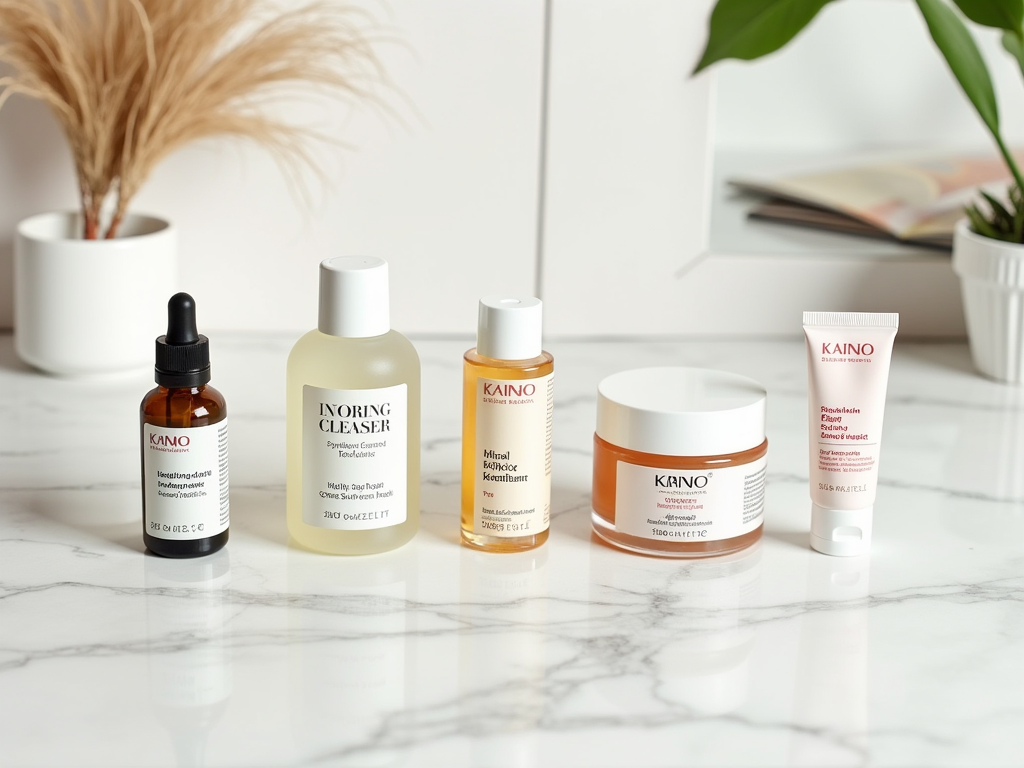With the ever-changing landscape of beauty products and trends, it can be daunting to keep your skincare routine fresh and effective. This article will address five simple yet impactful updates you can make to rejuvenate your skin care regimen. By integrating these changes, you can maximize the benefits of your current routine while addressing specific skin concerns. Let’s dive into these quick updates that promise an improvement in your skincare journey.
1. Switch to a Hydrating Cleanser

One of the most immediate updates you can make to your skincare routine is switching to a hydrating cleanser. Many traditional cleansers strip the skin of its natural oils, leaving it dry and irritated. By opting for a gentle, hydrating formula, you can maintain the skin’s moisture barrier while effectively removing dirt and impurities. Hydrating cleansers often contain ingredients like glycerin, hyaluronic acid, and aloe vera, which retain moisture and provide a soothing effect during cleansing. Here’s a brief list of hydrating cleanser benefits:
- Preserves the skin’s natural oils
- Reduces the risk of irritation and dryness
- Leaves the skin feeling soft and smooth
- Enhances the efficacy of other skincare products
- Provides a soothing cleansing experience
Since your cleansing step sets the stage for the entire routine, ensuring it’s a hydrating one can amplify the overall effectiveness of your skincare regimen.
2. Incorporate Vitamin C Serum

Vitamin C is a powerhouse ingredient that shouldn’t be overlooked in any skincare routine. It’s renowned for its ability to brighten the skin, even out skin tone, and protect against environmental stressors. By incorporating a vitamin C serum into your daily routine, you can enhance the radiance and health of your skin. Vitamin C also boosts collagen production, leading to a firmer, youthful appearance. To maximize its effectiveness, consider these tips:
- Apply the serum after cleansing and before moisturizing.
- Select a serum with at least 10% concentration for effective results.
- Look for formulations that include ferulic acid; it stabilizes vitamin C.
- Use it consistently for at least a month to see noticeable improvements.
- Always apply sunscreen after using vitamin C during the day!
By adopting this fundamental change, you’re providing your skin with vital nutrients that encourage a healthier complexion.
Exfoliating is essential for removing dead skin cells and promoting cell turnover, but choosing the right method is crucial. While physical exfoliation can be harsh, switching to chemical exfoliants might be a gentler and more effective alternative. Products containing AHAs (alpha hydroxy acids) and BHAs (beta hydroxy acids) can dissolve dead skin cells and unclog pores without the abrasion sometimes associated with scrubs. Consider the following perks of using chemical exfoliants:
- Provides a deeper level of exfoliation.
- Improves skin texture and tone over time.
- Helps with acne management by clearing pores.
- Can offer additional benefits like hydration and anti-aging.
- Reduces the appearance of fine lines and wrinkles.
Incorporating this type of exfoliation into your skincare routine can offer significant results without compromising skin health.
4. Boost Hydration with a Moisturizing Mask
Adding a moisturizing mask to your skincare regimen is a simple yet highly effective update. Masks provide concentrated nutrients and hydration that can give your skin a revitalized look overnight. There are numerous formulations to choose from, so you can easily find one that caters to your skin type, whether it’s oily, dry, or combination. Here are some benefits of using a moisturizing mask:
- Deeply hydrates and nourishes the skin.
- Delivers immediate results and a healthy glow.
- Can be used weekly or bi-weekly based on your needs.
- Offers a luxurious, spa-like experience at home.
- Helps to reinforce the skin’s moisture barrier.
By introducing a mask into your routine, you’re not only enhancing hydration but also promoting relaxation and self-care.
5. Don’t Forget Sunscreen!
Last but certainly not least, ensuring you apply sunscreen daily is an indispensable update to any skincare routine. Many people overlook this crucial step, but it serves as your first line of defense against skin damage caused by UV rays. Daily use of broad-spectrum sunscreen can prevent premature aging, hyperpigmentation, and even skin cancer. Here’s how to effectively incorporate sunscreen into your routine:
- Choose a minimum SPF of 30.
- Apply it daily, even on cloudy days or indoors.
- Reapply every two hours if you’re outdoors.
- Use it as the last step of your morning skincare routine.
- Consider makeup products with SPF for additional protection.
By committing to consistent sunscreen use, you’re safeguarding your skin from harmful rays while maintaining a youthful appearance.
Conclusion
Ultimately, refreshing your skincare routine doesn’t have to be complicated. By incorporating a hydrating cleanser, vitamin C serum, deciding on chemical exfoliants, using moisturizing masks, and applying sunscreen daily, you can achieve healthier, more radiant skin. These quick updates ensure that your routine remains effective and adaptable to your skin’s evolving needs. Remember, consistency is key, and with these adjustments, you will undoubtedly notice improvements over time.
Frequently Asked Questions
1. How often should I exfoliate my skin?
It typically depends on your skin type, but for most individuals, exfoliating 1-3 times a week is ideal. Sensitive skin may benefit from less frequent exfoliation.
2. Can I use a vitamin C serum with other active ingredients?
Yes, vitamin C can be combined with various ingredients like hyaluronic acid and SPF. However, be cautious about mixing it with strong actives like retinol as it may cause irritation.
3. Should I apply sunscreen if I work indoors?
Absolutely! UV rays can penetrate windows, so applying sunscreen is crucial even if you’re spending most of your day inside.
4. How do I know if a product suits my skin type?
To find the best products for your skin, consider your skin type (oily, dry, combination), check labels for suitability, and look for non-comedogenic options if you’re prone to breakouts.
5. Is it necessary to use a moisturizer in the summer?
Yes, even in the summer, maintaining skin hydration is essential. Choose a lightweight, non-comedogenic moisturizer to keep your skin balanced and hydrated without feeling heavy.





